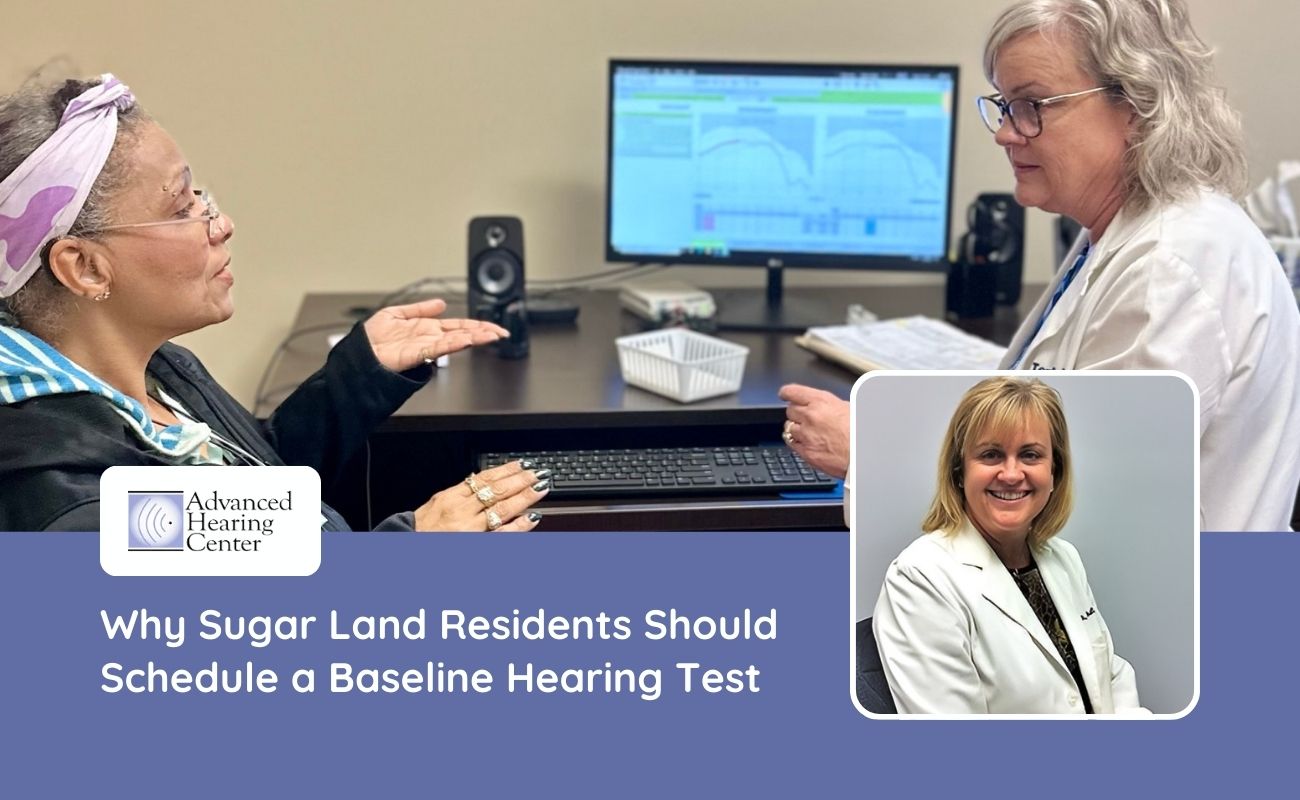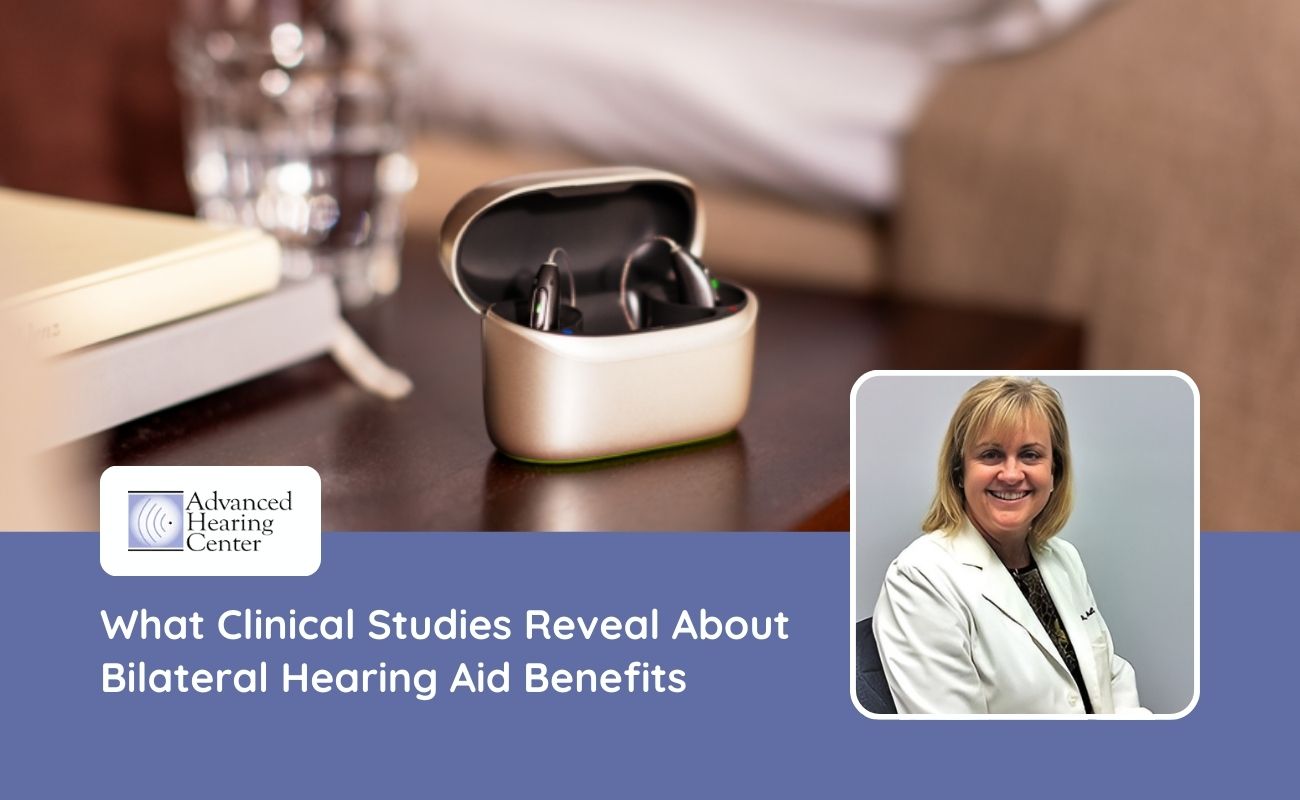
Balance problems affect millions of Americans yearly and can drastically impact daily life. At Advanced Hearing Center, we help patients identify and treat balance issues through specialized testing and personalized care. If you're experiencing dizziness or unsteadiness, you're not alone – about 35.4% of adults aged 40 and older experience vestibular symptoms, which means more than 1 in 3 adults in this age group face similar challenges.
Balance disorders stem from problems in the inner ear, brain, or other systems responsible for maintaining equilibrium. Your vestibular system - parts of your inner ear and brain - helps you stay balanced, maintain posture, and see clearly while moving. According to the National Institute on Deafness and Other Communication Disorders (NIDCD), about 4% of American adults report chronic balance problems that significantly affect their daily activities.
Do you often feel like the room is spinning around you? This spinning sensation, different from regular lightheadedness, might signal a vestibular disorder. True vertigo can make even simple tasks challenging and deserves professional attention.
Finding yourself grabbing furniture or walls while walking? This instability, especially noticeable in dark rooms or on uneven ground, often points to balance problems that need evaluation.
Falls pose a serious health risk, particularly for older adults. According to the CDC, one in four older Americans falls each year, and every 11 seconds, an older adult is treated in the emergency room for a fall-related injury. If you've fallen more than once recently without an obvious cause like tripping over something, your balance system might need checking.
Trouble focusing, blurry vision during head movements, or difficulty tracking moving objects can tie back to your balance system. These symptoms typically worsen when you're in motion.
Since your balance and hearing systems share space in the inner ear, hearing changes often accompany balance problems. Watch for hearing loss, ear ringing, or a plugged feeling in your ears.
Strong reactions to car rides, boats, or amusement park attractions might indicate vestibular issues. When your brain receives conflicting sensory signals about your body's position, motion sickness results.
Many people with balance disorders report trouble concentrating or remembering things. This happens because maintaining balance takes substantial mental energy, leaving less for other thinking tasks.
Several factors increase your chances of developing balance problems:
Your hearing and balance systems share more than location - they rely on the same fluid dynamics in your inner ear. This close relationship explains why hearing and balance problems often occur together.
At our center, we take this connection seriously. When you come in with symptoms suggesting vestibular issues, we assess both your hearing and balance. This comprehensive approach leads to more effective treatment plans.
Leaving balance problems untreated can lead to:
Consider scheduling an appointment if:
At Advanced Hearing Center, we use Videonystagmography (VNG) testing to pinpoint balance problems. This non-invasive test tracks eye movements in response to different stimuli, helping us assess your inner ear and central motor functions.
Our audiologists carefully evaluate these eye movements to identify any abnormalities in your vestibular system. With accurate diagnosis, we can recommend effective treatment options tailored to your specific condition.
We understand balance testing might seem intimidating, so we prioritize your comfort throughout the process. Our supportive environment helps you feel at ease during evaluation.
For patients experiencing both hearing loss and balance problems, we provide comprehensive care addressing both concerns. When fitting hearing aids, we use Real Ear Measurements to verify appropriate sound levels directly in your ear canal. This precision becomes particularly valuable for patients with vestibular disorders who depend heavily on sound cues for spatial orientation.
At Advanced Hearing Center, we develop individualized treatment plans based on thorough assessment:
The good news is that balance disorders respond well to proper treatment. Research shows that vestibular rehabilitation therapy significantly improves symptoms in approximately 75-80% of patients with stable vestibular disorders. Most people who complete a full course of vestibular rehabilitation experience notable improvements in daily activities and a substantial reduction in fall risk.
One patient recently shared how vestibular rehabilitation exercises helped him return to gardening - an activity he'd given up due to frequent dizziness. Another regained the confidence to travel after successful treatment for positional vertigo. These stories demonstrate how proper diagnosis and treatment can restore independence and joy to daily living.
While professional care remains essential for balance disorders, these practices can help maintain healthy balance:
Balance problems can seriously impact your safety and independence, but many falls can be prevented with proper assessment and treatment. If you've noticed any warning signs mentioned above, don't wait for a fall or injury to seek help. Early detection and treatment typically lead to better outcomes and can reduce your fall risk by up to 40%.
Our team at Advanced Hearing Center is ready to help you regain stability and confidence. Located in Sugar Land, our experienced audiologists provide compassionate care using advanced diagnostic tools. Call us at (281) 491-0200 to schedule your comprehensive balance assessment.
Your journey toward better balance starts with one simple step - reaching out to our team. We look forward to helping you move through life with greater stability and confidence.

Establishing a hearing baseline in 2026 is crucial for Sugar Land residents, as new research links hearing health to cognitive function and dementia prevention.

Clinical research shows bilateral hearing aids provide 20-30% better speech recognition, improved sound localization, reduced listening effort, and prevent auditory deprivation in unaided ears.

Stem cell research aims to regenerate auditory hair cells and nerves for hearing restoration, with human trials beginning in 2025 though practical treatments remain years away.